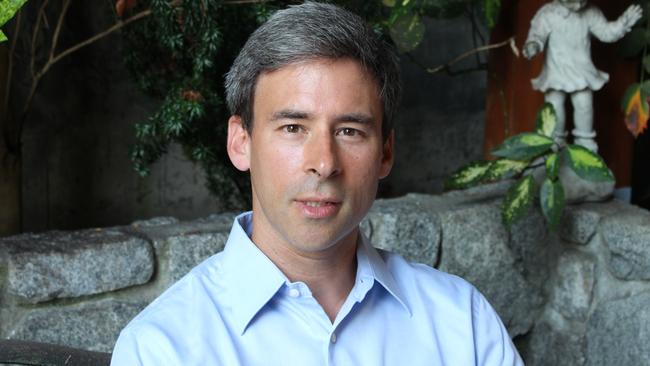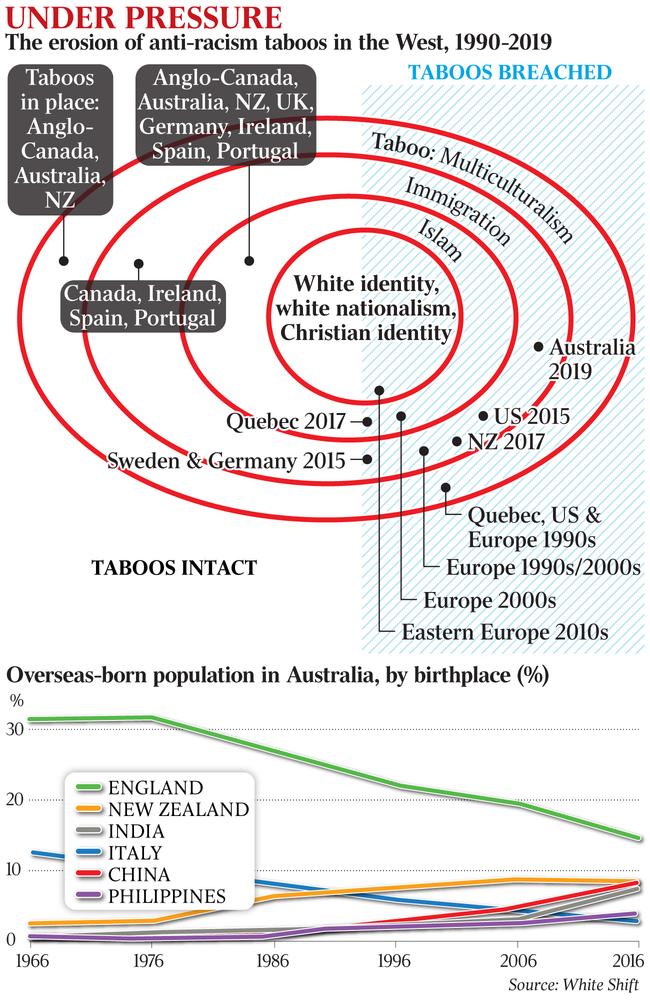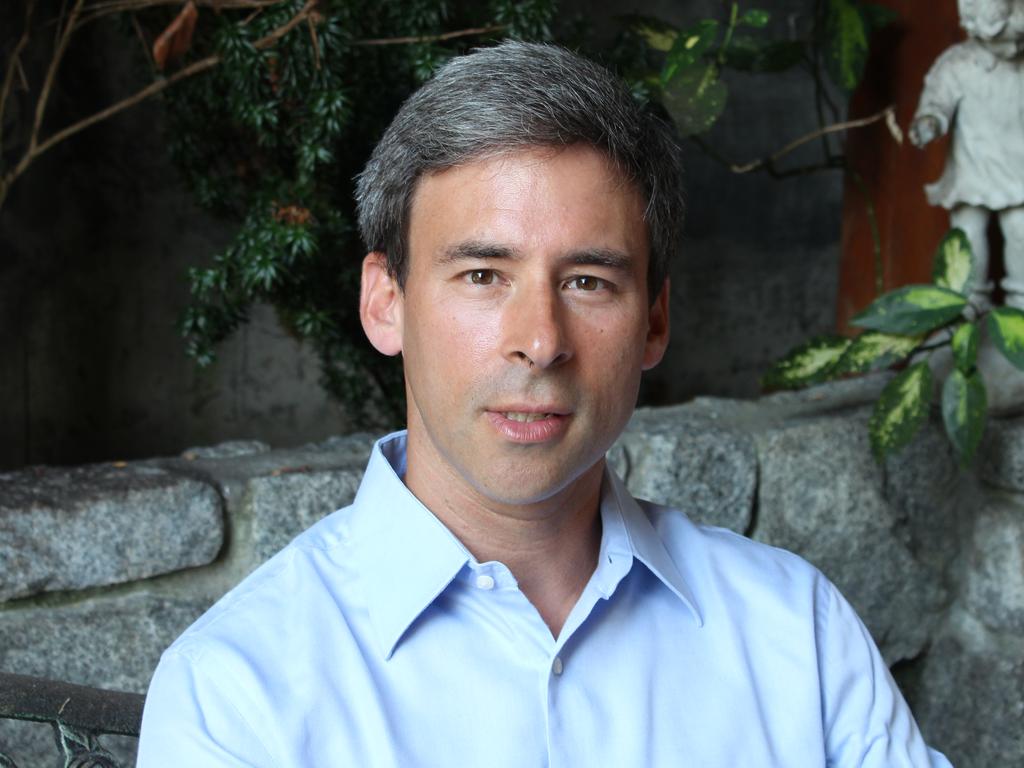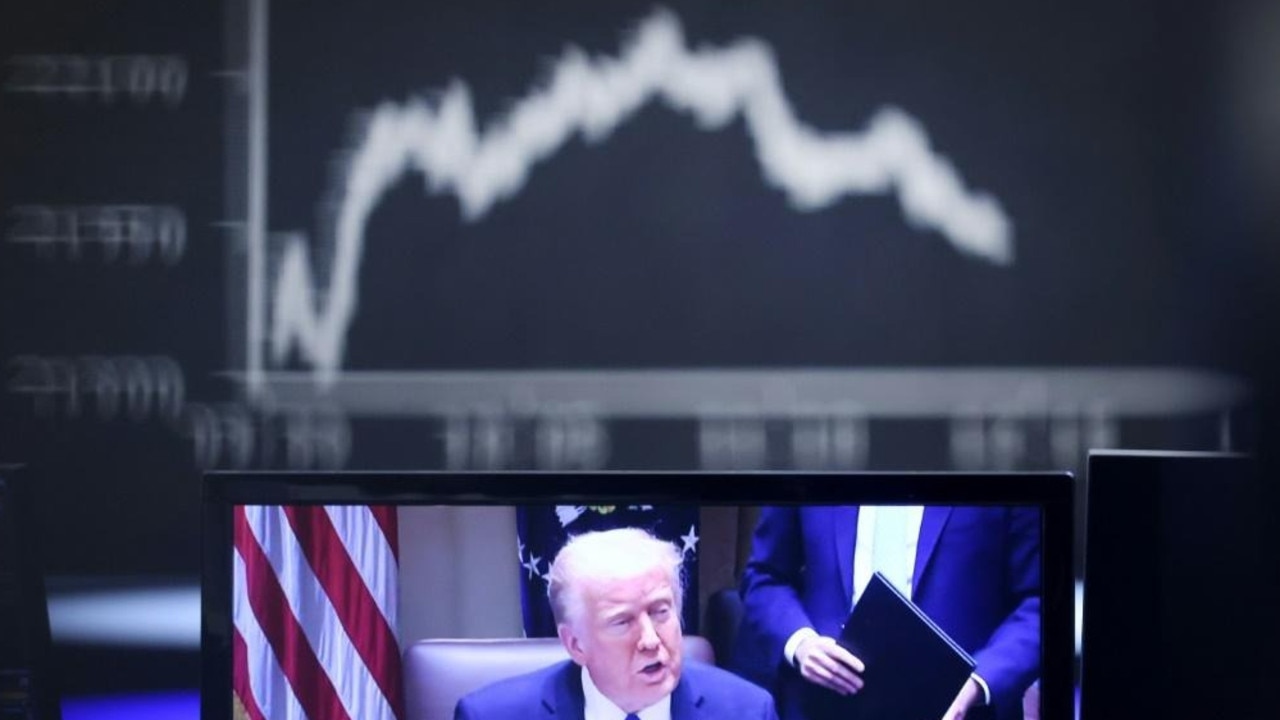Whites find their knight in Eric Kaufmann
White Shift is a white-hot book. It is a taboo-breaking take on immigration, race and the radioactive politics of right-wing populism.

White Shift is a white-hot book. It is a taboo-breaking take on immigration, race and the radioactive politics of right-wing populism, from Donald Trump to Brexit and One Nation.
It speaks to the Christchurch Muslim massacre and its aftermath of recrimination. Its author, Eric Kaufmann, is the academic equivalent of a unicorn: a mainstream political scientist worried about the future of white majorities in the West. Professor of politics at Birkbeck College, University of London, he has ignored the unspoken rule that difficult cultural debates are best airbrushed away with politically correct sermonising.
He has his own ethical framework but is upfront about it; he weighs the evidence and pins bad arguments of the cultural Left, without rancour. Despite this, his book is already being misrepresented.
Kaufmann puts the case for a new and surprising social compact. It starts with the modest proposition that whites, like any ethnic group, are entitled to worry aloud about their culture and identity, something that should not surprise when their numbers are shrinking.
“I don’t think that a white person who wants reduced immigration to help maintain their group’s share of the population is being racist,” Kaufmann says.
“Whites should feel free to express a group self-interest so long as they accept the need to make compromises with other groups.”
If Kaufmann’s compact is to work, the Left’s anti-racist project has to restore a sense of proportion, anchoring the lethal charge of racism to a careful definition and solid evidence. That means an end to lazy smears about never-ending white “structural racism”. Worse than unfair, this is foolish. “Repressing white identity as racist and demonising the white past adds insult to the injury of this group’s demographic decline,” Kaufmann says. “This way lies growing populist discontent or even terrorism. Ethnic majorities need a future.”
Critics on the Left are suspicious. Last year, when Kaufmann and others were set for a London panel debate on the provocatively framed question “Is rising ethnic diversity a threat to the West?”, one of those instant protest-petitions sprang up, with the usual disclaimer: “As academics and activists, we do not need to be convinced as to the importance of public debate.” As ever, they had a big “but”: “this debate was framed within the terms of white supremacist discourse.” There is a similar sleight of hand in other reviews: that in explaining Trump and his populist friends, Kaufmann lends them legitimacy.

Yet White Shift also won a string of best book nominations last year. One blurb declares it “perhaps the first truly definitive book of the Trump era”. New York Magazine said: “Kaufmann has done something exceedingly rare among centre-right thinkers, which is to write an intelligent, challenging, and in its own way, brave book about race and identity … an honest attempt to understand our present dilemmas … at present, White Shift is the best diagnosis of populism the Right has to offer.”
Kaufmann has written an unusual book. It is a masterclass in the study of nationalism with a data nerd’s profusion of charts. It pulls together seemingly all the big political shocks and culture fights of our times, the brutal polarisation as well as overlooked signs of hope. It is a book that ranges around the globe and digs deep in history for nuggets of evidence and gems of fact. In a passage on how race gets categorised, Kaufmann observes: “Not all cultures have the exact same colour words; only modern societies do. The Himba, for example, isolated semi-nomadic herders in Namibia, don’t have a word for green in their language.”
Running to 537 pages, this is a political history of the West transfixed at a crossroads, a story told in demography and vigorous, jargon-light prose. Kaufmann doesn’t mind the odd, modern swearword, such as “assimilation”.
“Excluding particular groups (from a country) is racist because it denigrates specific ethnic communities, but attempting to insulate established ethnic groups from rapid cultural change isn’t,” he says. He says extra points could be awarded to “prospective immigrants who are more likely to assimilate into the existing ethnic constituencies in a country”; those “in an inter-ethnic marriage or of secular or moderate religiosity”.
In return, the white majority ought to be more willing to share its traditions with people who arrive as outsiders but are open to intermarriage. This is what Kaufmann means by whiteshift— “a model in which today’s white majorities evolve seamlessly and gradually into mixed-race majorities that take on white myths and symbols”. Of course, some whites will be comfortable with a cosmopolitan identity and some minorities will be happy as distinct, hyphenated citizens.
That won’t reassure the cultural Left but Kaufmann is an equal opportunity irritant. American neo-Nazi organ Daily Stormer is indignant, saying he “is trying to sell white folks on the idea that racial extinction isn’t really that bad. It doesn’t hurt a bit! Kaufmann has personal genetic investment in, and experience of, diversity.”
True, Kaufmann’s ancestry is 50 per cent Jewish, 25 per cent Chinese and 25 per cent Latino. His paternal grandfather was a chemist who escaped Nazi Germany in 1938 and ended up in Canada, while the grandfather on his mother’s side was a Chinese merchant in Costa Rica. Kaufmann was born in Hong Kong, spent eight years in Tokyo as a diplomat’s child, although most of his schooling took place in Vancouver. In 1993 he shifted to London. He’s still an ice hockey fan.
On paper, he is a cosmopolitan elite from central casting. He’s a global “anywhere” advocating for the nativist “somewheres”, but with a mixed-race majority twist. He agrees his interest in the continuity of the white majority may have something to do with the “dislocation” of his upbringing. He traces his interest in “the problem of national identity” back as far as age 10.
“Not looking Japanese (in Tokyo) and being pointed at and called a foreigner — that was part of your daily experience, but you just got used to it,” he tells Inquirer. “I wouldn’t advocate it, but I wouldn’t say it was something that degraded my experience there. And growing up (mixed-race) in a WASPy suburb of Vancouver, that was quite distinctive.”
It’s also true he is the product of his parents’ assimilation, although he is quick to acknowledge his minority affiliations. “Assimilation is under-chronicled,” he says. Certainly social scientists have had little positive to say about the experience of minorities “who take that journey”.
Kaufmann appears to be just the right person to judge the trade-offs between standing apart and joining the mob. If only he could have written White Shift, who will form the political cadre to sell its message? A “moderate liberal”, Kaufmann backs social taboos for genuine racism and feels the rebellion against social justice warriors has gone too far now that criticism of extreme Islamism is spilling over into anti-Muslim prejudice. But he expects cultural debate will become less heated once the white majority is free to ventilate some angst.
“(Whiteshift) will enable conservative whites to find a sense of ethnic continuity in the rising mixed-race population … Majority reassurance, far from leading to oppression, promises to reduce insecurity, opening the way for a return to more relaxed, harmonious and trusting societies.”




To join the conversation, please log in. Don't have an account? Register
Join the conversation, you are commenting as Logout